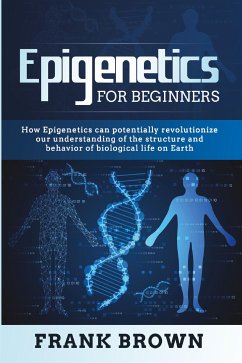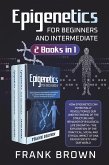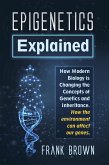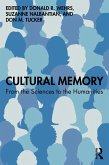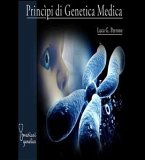You Are A Step Away From Opening Your Eyes And Mind To The World Of Epigenetics In A Manner That Will Help You Appreciate The Complexity Of The Human Cell, Genes And Other Components And How That Knowledge Is Being Applied In Transforming Lives! In the Dutch Hunger Winter of 1944-1945, the individuals who were exposed to the famine just before birth were seen, about 60 years later, to have increased rates of coronary heart disease and obesity compared to those who weren't exposed to the famine. That must been a result of an alteration in their genetic coding, right? NO. Apparently, they were found to have less DNA methylation (addition of methyl groups to the DNA molecule to change a segment without affecting the DNA's sequence) of the imprinted Insulin-like Growth Factor 2 gene compared to their siblings who had not been exposed, which shows the role of a powerful factor that doesn't require the change of the genetic sequence in organisms in development and evolution. That factor is epigenetics, and has been singled out by experts as a very important factor in evolution, yet so much underestimated in modern biology. But how is this process organized and controlled in the human body? How is it being used to advance human health? What are some of the innovative ways we benefit from it, perhaps harness its power to improve chronic diseases and conditions? Are there any risks in epigenetic therapy? How do epigenetics work at the most basic level? If you have these questions now, or have been having them before you landed here, then you are at the right place. This book answers these and many more questions to give you an insight into a mechanism that has become of central importance in modern day genetics research in the most straightforward, simple and comprehensive way. The aim is to see how gene expression can successfully be altered without touching the DNA sequence, and what that means for the resultant expression of traits; and how this phenomenon can be tapped in understanding life, and improving it. Here's a bit of what you'll find in this concise book: •What epigenetics are and how they work •Why epigenetics are important and how they relate with our experiences •The basics of body cells, including what cells really are and how they divide •The ins and outs of DNA, genes and chromosomes •How epigenetics are conceptualized today •The existing evidence of epigenetic changes; within indirect epigenetics, across indirect epigenetics and transgenerational epigenetic inheritance •The mechanisms of epigenetics and methodological insights •How epigenetic therapy is used to treat mesothelioma •The types of epigenetic therapies available today •The risks, benefits and research on epigenetic therapy •How epigenetic control affects transcriptional regulation in pluripotency and early differentiation, DNA methylation and Demethylation, nucleosome remodeling and chromatin looping •The impact of epigenetic changes in diabetes and cardiovascular risk …And much more! Even if you are completely new to genetics or epigenetics in particular, this book will be useful and valuable to you even if everything sounds like complex/advanced science because the book takes a beginner friendly approach to the topic. Scroll up and click Buy Now With 1-Click or Buy Now to get started!
Bitte wählen Sie Ihr Anliegen aus.
Rechnungen
Retourenschein anfordern
Bestellstatus
Storno

